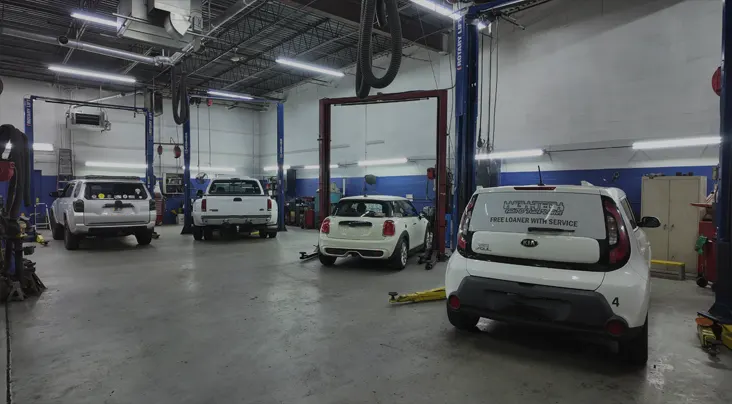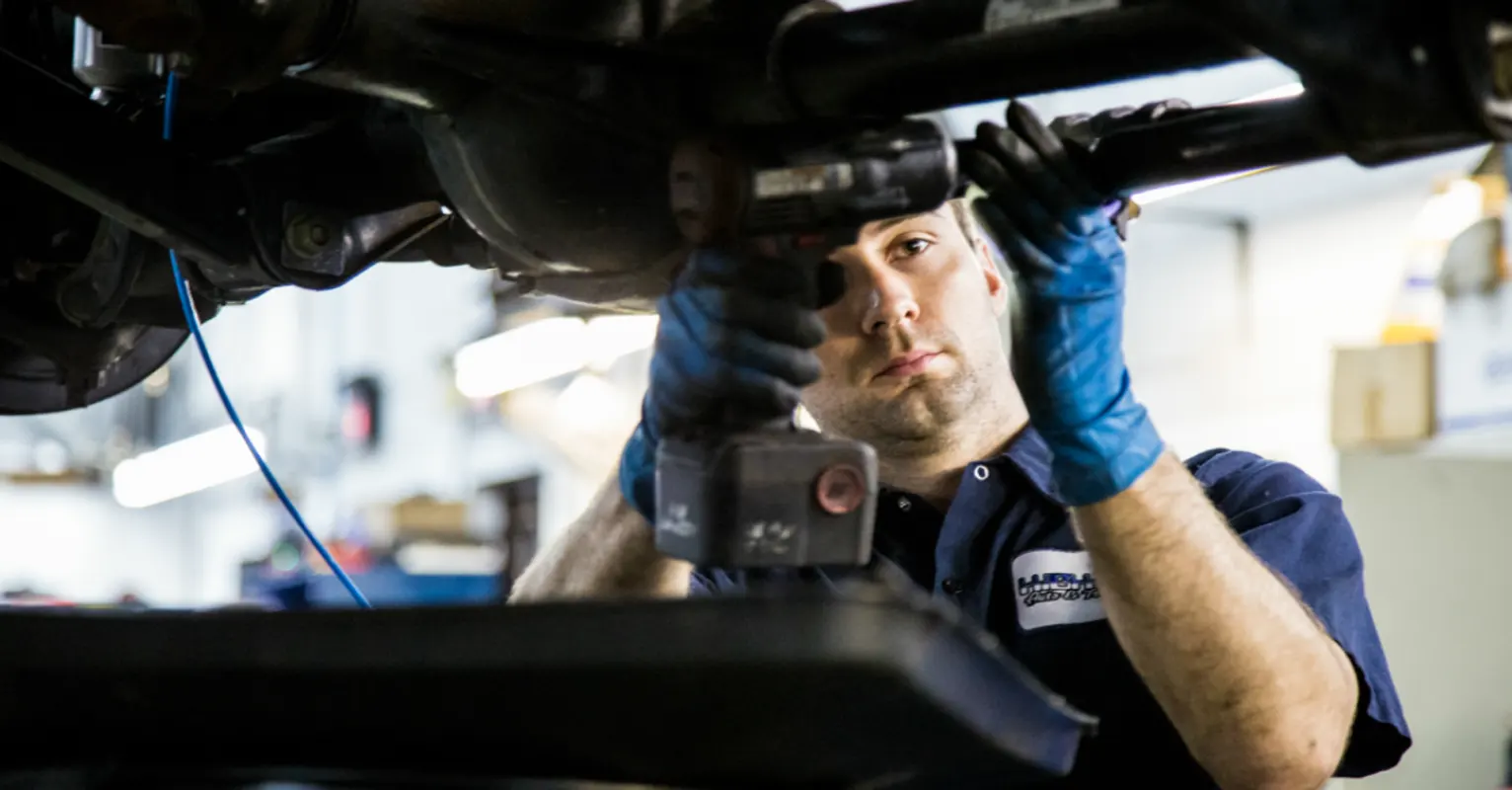
Archive for July 2025A Turn for the Worse (Using Turn Signals)Posted July 27, 2025 4:24 AMDistracted driving is bad, you know that. Daydreaming, talking on the cell phone, putting your makeup on in the rear view mirror. All bad. But there's something else that causes more than twice as many accidents, according to a recent study. And that's people who don't use their turn signals. Maybe you're one of them. One survey said nearly a quarter of drivers were just too lazy to use their turn signals. Others said they didn't use them because they weren't really necessary. Traffic laws may dictate otherwise, but statistics show police don't write that many tickets for turn signal violations. You may have encountered the driver who cuts into your lane without signaling a change. Often, that person does it deliberately to catch you off guard so you won't invade his or her space. And when it comes to young drivers using turn signals, one insurance company survey showed more than two-thirds of those they talked to admitted it wasn't their regular practice. Knowing that, you may wonder why you should use your turn signal. The reason is simple. It lets other drivers know what you plan to do. Driving it tricky enough with all the moving parts on the road. The more you know what other people are doing, the more you can prepare for that with the way you drive. How many times have you seen someone turn left without putting their turn signal on? That's a leading cause of rear-end accidents. Not only does using your turn signal promote safety, it also shows courtesy to other drivers. There are some drivers who don't use turn signals because their turn signals don't work. What a lousy excuse! All of the safety equipment in your vehicle should be working; if it isn't, head over to your repair facility. Often it's as simple as a burned out bulb or a broken wire. Finally, the number one reported reason for not using a turn signal is that drivers just forget to do it. (And the ones who DO use their turn signals and forget they're on? We won't even go there.) Engineers put turn signals on vehicles for a reason. They help drivers communicate with other drivers. Using them could save accidents… and lives.
The Byte Stuff (Your Vehicle's Computers)Posted July 20, 2025 4:44 AMNobody has to tell you that computers are a part of so many things in our lives. Smartphones, kitchen appliances, vacuum cleaners, televisions. You name it—it has a computer in it. And your vehicle is no exception. The earliest cars relied on the technology of their time, and there was no such thing as a computer. But now, it's not unusual for a vehicle to have as many as 150 computers in it. They perform a variety of functions. An important one is diagnosing your vehicle's problems. There are various sensors throughout modern vehicles that measure thousands of data points. When something is not working correctly, they send a signal to another computer that stores that information. The data can be read by someone who has a special computer that plugs into a port in your car. It displays certain codes that help technicians track down the culprit. But it's not just the diagnostics that are computerized. Everything from your vehicle's fuel injection to anti-lock brakes is. Convenience features such as power windows, rain-sensing windshield wipers, a wi-fi-hot spot, streaming video and navigation are all sophisticated computers. Then there are the safety features; air bags, traction control, automatic emergency braking and a host of others are all dependent on computers. It is important that those computers work correctly because they interface with many of the other computers on board. To properly diagnose problems with those computers requires training and special equipment. Your service facility has invested considerable resources into both, and they are equipped to properly evaluate and repair and/or replace malfunctioning components. Some lament the days when backyard mechanics could pull out their tools and do their own repairs. Those days are fast disappearing with the computerization of vehicles. But look at the bright side. Your vehicle does so much more, has so many more features and travels far more safely than those past generations drove. And they're bound to get better and more sophisticated down the road. High-Tech Auto and Truck Center Steer Me Right! (Failing Power Steering Hose)Posted July 13, 2025 4:52 AMMost drivers love how easy it is to turn their vehicles, and they have power steering to thank. Engineers have figured out a way to take some of your engine's power to help you turn. Without it, steering can be quite a chore. New power systems are electric, but there are still plenty of the older hydraulic power steering systems out there, and it's wise to keep them working the way they should so you don't find yourself stranded without power steering. Those hydraulic power systems use a fluid under pressure that is pumped to a device that helps you turn your wheels more easily. It's that pressure that presents the challenge. After your vehicle's seen a few years on the road, you may find your steering isn't quite as easy as it was. You may hear a groaning or humming sound when you turn. One component that can fail is the pressure hose that carries that fluid from the power steering pump to that turning assist mechanism. The hose is made of rubber and can leak, crack, get damaged by heat and debris or just get too old. If yours is ten years old or older, it's likely getting close to the end of its life. If you think you can just wait until it fails completely, think of these possible consequences. If the hose or a coupling fails, power steering fluid can blow all over the hot engine. That fluid is flammable and can start a fire. Or if you've been driving for a few weeks with low power steering fluid, that could ruin your power steering pump. Replacing the pump is an extra expense you can probably live without. A technician will replace the necessary parts and make sure air and contaminants are bled or flushed from the system. Then, he or she will check for leaks. Just think how important a properly working power steering system is for safe operation of your vehicle. Make sure you keep yours in top shape for your safety's sake and the safety of others on the road around you. High-Tech Auto and Truck Center No Yolk! Rotten Egg Smell (Sulfur Smell Causes)Posted July 6, 2025 4:20 AMThe pungent smell of rotten eggs can send people running for the hills. So when that odor is inside your vehicle, yikes! Yolks! The good news is that a trained service technician can search the source of that smell and stanch the stench… that comes from another words that begins with S. Sulfur. Fuel contains small amounts of hydrogen sulfide, but they're enough to stink up a vehicle when it's not properly burned. You may know that the smell of rotten eggs can often be a sign of a catalytic converter that isn't working the way it should. That could be due to age, damage or an abundance of oil that's clogging it up. If a sensor in charge of managing the fuel has failed, the engine can run with too rich of a fuel mixture. That can overload the catalytic converter and allow some of the byproducts to escape without interruption from the chemical reaction that is supposed to prevent them from going out the tailpipe. There's another possibility, but it's usually only in stick shift vehicles. That's leaking, old transmission fluid. Catalytic converter repairs are best left to a professional. Technicians at your vehicle service facility have equipment and training that can help them pinpoint the cause of this funky fragrance. Once the cause is found, repairs made and/or parts replaced, the smell should go away fairly rapidly. High-Tech Auto and Truck Center | ||
SearchArchiveDecember 2024 (16)January 2025 (4) February 2025 (4) March 2025 (5) April 2025 (4) May 2025 (4) June 2025 (5) July 2025 (4) August 2025 (5) September 2025 (4) October 2025 (4) November 2025 (5) December 2025 (4) January 2026 (3) | CategoriesBrake Service (3)Engine Air Filter (1)Fuel Filter (1)Dashboard (1)Spark Plugs (1)Timing Belt (1)Alternator (1)Safety (1)Exhaust (4)Fuel Economy (3)Tires and Wheels (1)Older Vehicles (1)Battery (1)What Customers Should Know (21)Cabin Air Filter (1)Drive Train (1)Tires (3)Brakes (2)Alignment (1)Inspection (1)Air Conditioning (4)Trip Inspection (1)Fuel System (1)Keys to a long lasting vehicle (1)Service Intervals (1)Customer Detective Work (1)Steering (2)Oil Change (2)Tire Rotation and Balancing (1)Check Engine Light (1)PCV Valve (1)Differential Service (1)Winter Tires (1) | |
What Our Customers Say
I’ve just been requesting some basic maintenance on my vehicle when time isn’t on my side, service team’s been great
Read more >~ Vibol Phan, 01/14/2026


High-Tech Auto and Truck Center
4007 Westfax DrSuite D
Chantilly, VA 20151
Serving Areas
High-Tech Auto and Truck Center
4007 Westfax DrSuite D
Chantilly, VA 20151









